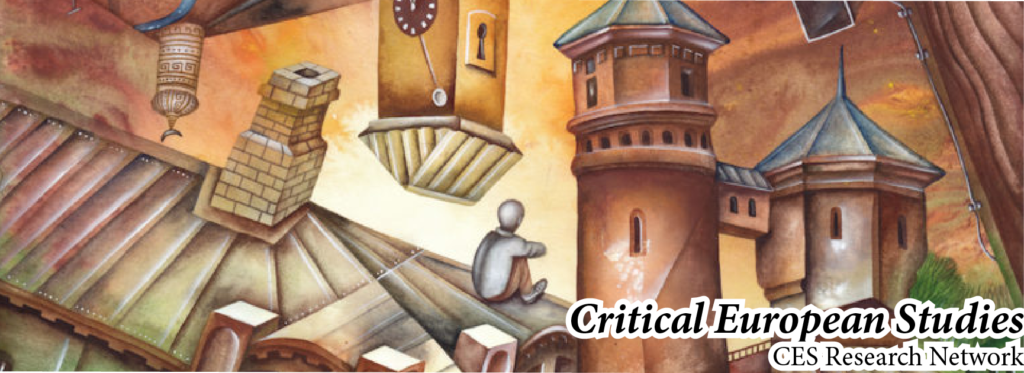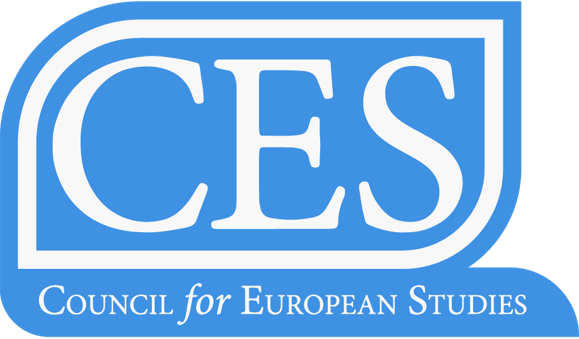
To join this network, click here. Note: All Memberships in CES Research Networks are only open for CES individual members in good standing.
Follow the Critical European Studies Research Network on Twitter @CESCritEuro
Network Announcements
June 2021: The final schedule for the 2021 Critical European Studies Research Network Conference Sessions is now available. To view it, click here.
June 2021: For a list of our members’ conference paper presentations, click here.
Awards
2021
Interdisciplinary pedagogical project in European Studies Award: This teaching award recognizes an innovative interdisciplinary pedagogical project. Taylor Soja received the award for her project “Digital World Wars.”
First paper by a PhD student or junior scholar (PhD+ 1): This first paper award recognizes a PhD student or recent PhD for the publication of a single author paper in a peer-reviewed journal in any discipline on any topic that is relevant to the study of Europe. Devran Gulel received the award for her paper “Patterns of Misogyny in Turkey’s Contemporary Political Discourse” published in NAD-DIS journal.
2021 Awards Committee:
- Jamie Trnka, Xavier University
- Kristin Rebien, San Diego State University
- Nick Ostrum, Xavier University of Louisiana
- Jodi Reeves Eyre, Council on Library and Information Resources
The Critical European Studies Research Network has a tri-fold mission. It welcomes scholars who seek to:
1. Critically examine the field of European Studies by interrogating the production of knowledge in and about Europe, question which Europe is envisaged in the discipline, and imagine possible futures for European Studies. In particular, the network is interested in issues of inclusion/exclusion and the different geographies of research production and dissemination.
Questions: “Who are we as Europeanists? Who is included/excluded from the field? Which Europe do we study?”
2. Strengthen linkages between how Europeanists research Europe and how they teach it, in effect building bridges across higher education and facilitating the effective use and production of research in the classroom (conceived widely), as well as examining issues in higher education or “public” education.
Questions: “How do we diffuse our research to the public? How do we make it useful in teaching and involving the next generations of Europeanists?”
3. Build a culture of sharing of pedagogical materials and strategies, focusing on interdisciplinarity, new technologies, and collaboration across ranks and institutions to help cultivate the next generation of scholars and educators.
Questions: “What can we learn from each other? How can we include different Europeanist voices from different ranks and geographies in higher education? How can we innovate in teaching about Europe, using new technologies and techniques?”
Within CES, the objective of the Critical European Studies Research Network is to stimulate, support, organize, and enhance critical and collaborative explorations into the evolution of European Studies, as well as foster the emergence of a community of scholars who reflect on education, education systems, and education practices in European Studies—engaging with issues of inclusiveness, equality, and justice in learning environments. It further seeks to influence positive political and social change by motivating innovative curriculum development and effective training in the classroom and beyond. The Research Network is particularly interested in engaging with the opportunities for cross-border connections made possible by digitalization, in particular since COVID-19. Working alongside CES’ other Research Networks as a bridge between research and pedagogy, the Research Network is also keen to bridge hierarchies within academia and provide a space for shared reflection between faculty, undergraduate and graduate students, academic administrators and program directors, librarians and information scientists, and all who partake in higher education systems. To this end, we encourage members with diverse backgrounds and levels of experience in the Academe to participate.
The Research Network diffuses its action through CES’ global online journal and flagship publication arm EuropeNow. Specifically, it contributes to making the “Campus” section of the journal into a platform where reflection about the field of European Studies and pedagogical knowledge and research are disseminated. Through its different content types, EuropeNow Campus complements the activities of the Research Network by actively promoting a culture of sharing best practices and encouraging the creation of a pedagogical commons to become a go-to platform for teaching Europe.
Chair:
- Hélène B. Ducros, JD, PhD, Council for European Studies, helene@alumni.unc.edu
Co-chair for Institutional Inclusiveness:
- Nicholas Ostrum, PhD, Xavier University of Louisiana, nicholasostrum@gmail.com
Advisory Board: Vacant


